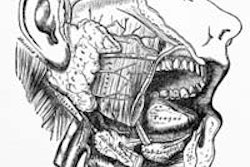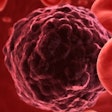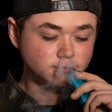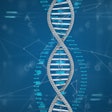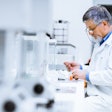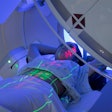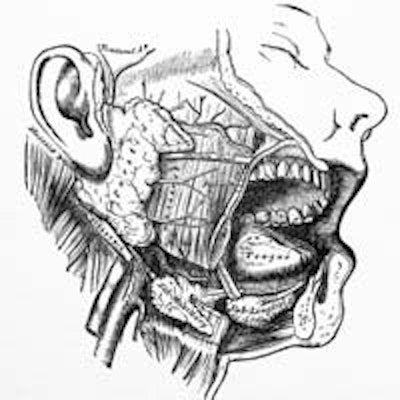
The risk of developing salivary gland cancer might be higher in people with mutations in either of two genes associated with breast and ovarian cancers, according to a new study in JAMA Otolaryngology -- Head & Neck Surgery (September 25, 2014).
Although salivary gland cancer is rare in the U.S. (about three cases occurring annually per 100,000 adults in the general population [0.003%]), this retrospective study suggests it occurs 17 times more often in people with inherited mutations in the BRCA1 and BRCA2 genes than those in the general population. A link between breast cancer and salivary gland cancer has been suspected for decades, the study authors noted.

The finding, which must be verified, should be considered during genetic counseling for people with BRCA1 or BRCA2 mutations. However, as the study authors noted, unless there is a family history of breast or ovarian cancer, it is premature to offer genetic testing for these gene mutations to individuals with salivary gland cancer.
Individuals known to carry mutations in these genes and who have a salivary gland mass should be evaluated by a physician, according to researchers at the Ohio State University Comprehensive Cancer Center -- Arthur G. James Cancer Hospital and Richard J. Solove Research Institute (OSUCCC – James).
"Further study is needed to confirm this preliminary result, but I believe that a BRCA-positive patient with a lump in a salivary gland should have that lesion evaluated as soon as possible," said study co-author Theodoros Teknos, MD, a professor and the chair of otolaryngology and the director of head and neck oncologic surgery at OSUCCC – James, in a statement.
It has been established that women who inherit mutations in either of the two genes have a higher risk of breast and ovarian cancer than women without the mutation; men with the mutations also are at higher risk of breast cancer, the study authors noted. The two mutated genes are also linked to prostate, pancreatic, and other cancers.
The study's principal investigator, Rebecca Nagy, a certified genetic counselor and clinical associate professor of human cancer genetics at OSUCCC – James, recommends that individuals who carry a BRCA mutation be made aware of this possible association.
"The findings should be considered during genetic counseling of families with inherited BRCA1 or BRCA2 mutations," Nagy said. "In the future, patients with salivary gland cancer and their family members might be referred for BRCA testing, or carriers of BRCA mutations might undergo surveillance for salivary gland cancers."
For this retrospective study, the researchers included pedigrees from patients with breast cancer in the Clinical Cancer Genetics Program at the Ohio State University Wexner Medical Center. A total of 5,754 individuals were identified from 187 pedigrees, and their medical histories were reviewed for diagnoses of salivary gland tumors and BRCA testing.
"The observed rate of 3 of 5,754 cases (0.052%) of head and neck cancers in BRCA-positive probands and likely carriers is significantly higher than the background incidence rate of 3 of 100,000 (0.003%) per year (p < 0.001)," the study authors wrote.
"I would like physicians and dentists to realize that BRCA mutations carry risks for salivary gland cancer as well as breast cancer, and to remember that salivary glands include not only the paired parotid glands and submandibular glands but also innumerable minor salivary glands in the oral cavity," Dr. Teknos advised.






